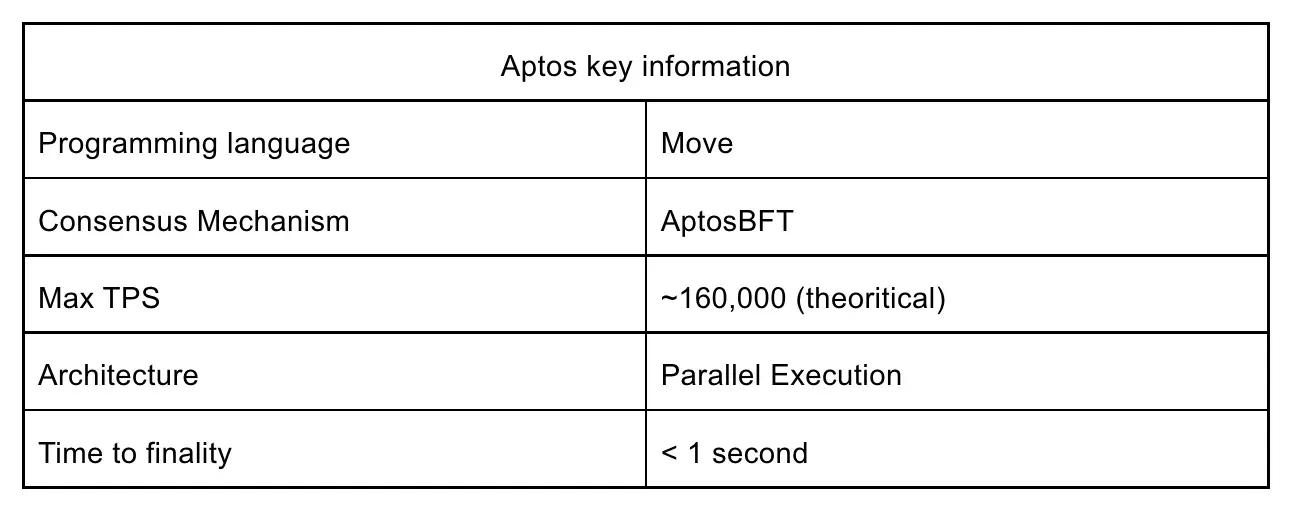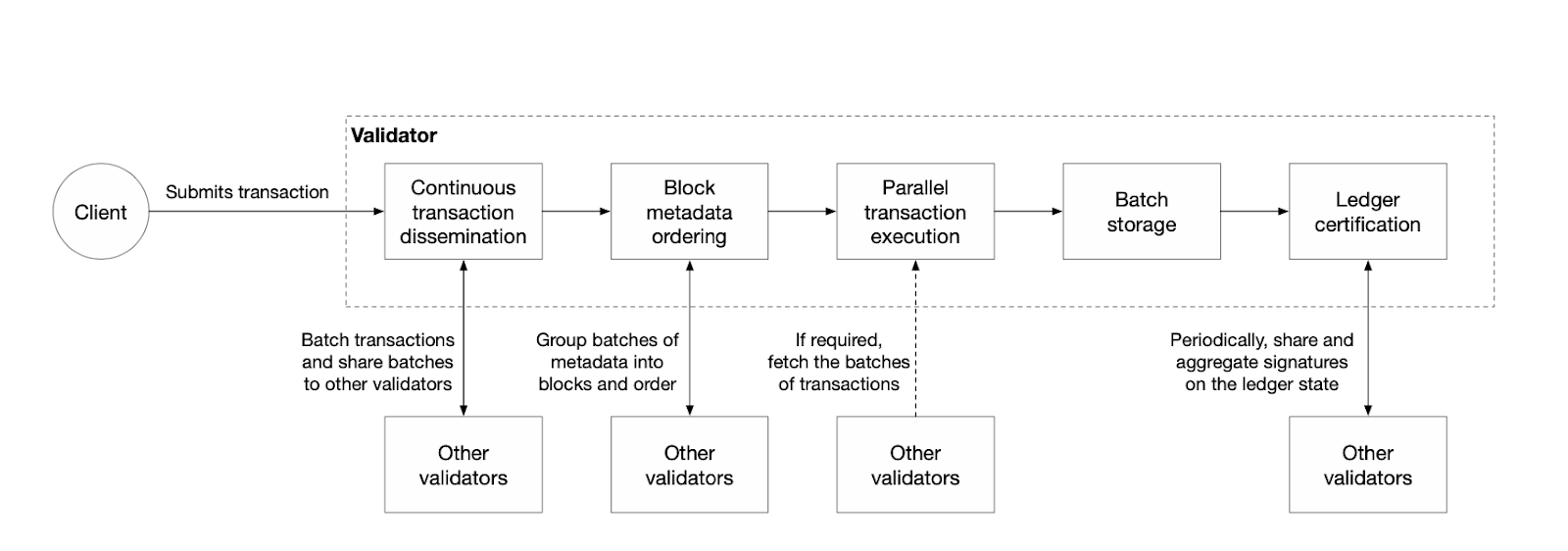An Introduction To Aptos: The Project Building a Scalable Layer-1 Blockchain
As Mainnet is coming close, we figured it's time to introduce you to Stakin’s latest network additions: Aptos, the proof-of-stake blockchain building a scalable layer-1 blockchain built with the Move programming language. Aptos brings important new features such as Hybrid Custody, parallel execution, horizontal throughput scalability, and of course on-chain governance and staking, which we will detail below.

The Move programming language: Move is a bytecode language that can be executed to implement custom transactions and smart contracts. The ability to define custom resource types with semantics inspired by linear logic is a crucial feature of Move: a resource can never be copied or implicitly discarded, only moved between program storage locations.
Safe User Experience
Aptos improves user safety by enabling flexible private key management and hybrid custody services. A user can delegate the ability to rotate the account’s private key to one or more custodians and other trusted entities. A Move module can then define a policy that empowers these trusted entities to rotate the key under specific circumstances. Aptos achieves high throughput and low latency by utilizing a unique parallelized and modular pipeline design for transaction processing key stages. This enables the chain to maximize hardware efficiency and parallel execution of all transaction processing components.

Parallel Execution and Scalability
Furthermore, Aptos allows for instant upgrades with low downtime. The Move programming language is used to focus on security by utilizing its modular architecture and allows parallel execution and horizontal throughput scalability without adding additional complexity for node operators.
Parallel execution works by identifying and executing independent transactions at the same time. Two transactions are interdependent if the performance of one affects the execution of the other. For example, automated market maker (AMM) transactions in the same pool are interdependent and must be executed sequentially.
Aptos detects dependencies while remaining transparent to the user/developer, which means that transactions are not required to explicitly state which part of the state (memory location) they are using. Aptos employs a variant of Software Transaction Memory (STM) known as Block-STM. Transactions in Block-STM are pre-ordered in blocks and distributed among processor threads during execution for optimistic execution. The execution of a transaction is assumed to be devoid of dependencies. The transaction modifies memory locations, which are recorded. Following transaction execution, all transaction results will be verified.
If a transaction is found to have accessed a memory location modified by a previous transaction during verification, the transaction is declared invalid. The transaction result will be refreshed, and the transaction will be re-executed. This process is repeated until all the block transactions have been completed. When using multiple processor cores, Block-STM can improve execution speed. The rate is determined by how interdependent the transactions are.
Horizontal throughput scalability refers to adding additional nodes or machines to an infrastructure to cope with new demands. For example, if you are hosting an application on a server and find that it can’t handle traffic anymore, adding a server might be the solution.
Governance
The current Aptos on-chain governance process (likely to be improved over time) allows community members to create and vote on proposals to reduce the cost of protocol upgrades. The Aptos Governance module enables users to vote on on-chain proposals. An early expiration threshold of 50% of the total supply of Aptos Coins has been implemented. This allows for the quick implementation of emergency bug fixes without waiting for the entire voting period. You must stake to propose or vote on a proposal, but you are not required to run a validator node. To submit a proposal, the proposer's staking pool must contain the minimum necessary to prosper stake and be locked for the voting period.
Final Thoughts
Stakin has been involved in the different Aptos Incentivized Testnet phases and is working with a selected set of validators to offer the best possible performance for Aptos users. We’re thrilled to announce that we’ll be supporting the network with reliable validator infrastructure and help further develop the blockchain ecosystem.
If you are interested in Aptos staking, Stakin will be running its own public Aptos node, and will be offering dedicated nodes for institutional customers looking to stake their Aptos tokens. Visit our website and contact our team to get to know more about our services for Aptos.
DISCLAIMER: This is not financial advice. Staking, delegation, and cryptocurrencies involve a high degree of risk, and there is always the possibility of loss, including the failure of all staked digital assets. Additionally, delegators are at risk of slashing in case of security or liveness faults on some protocols. We advise you to do your due diligence before choosing a validator.


Join the conversation